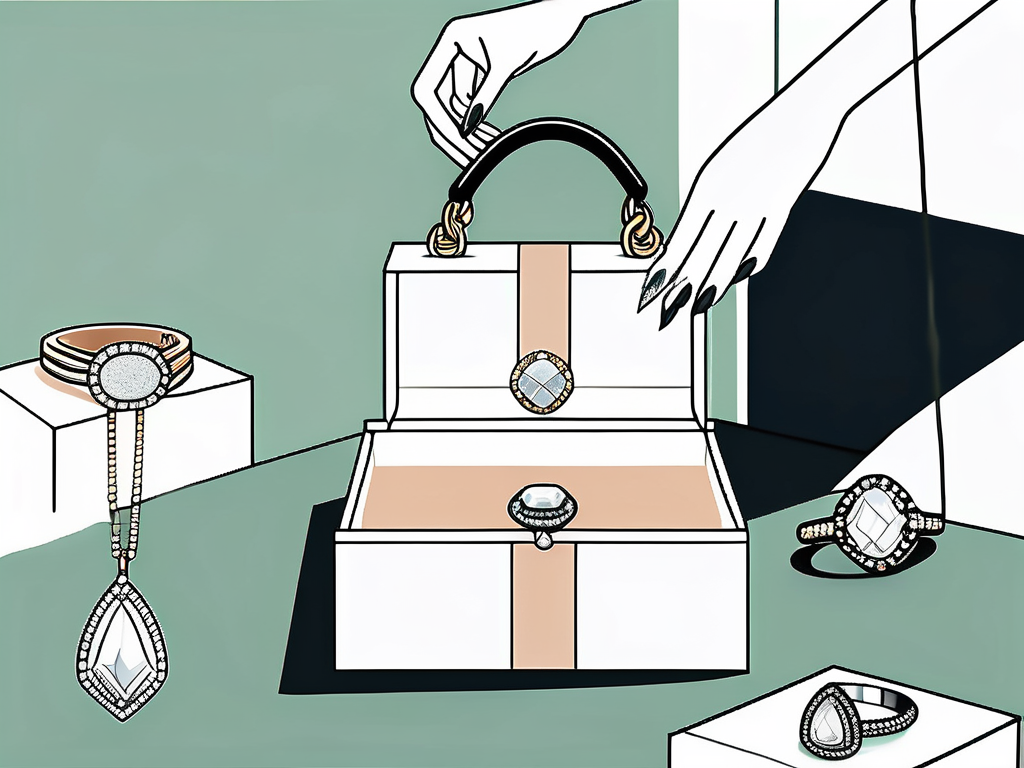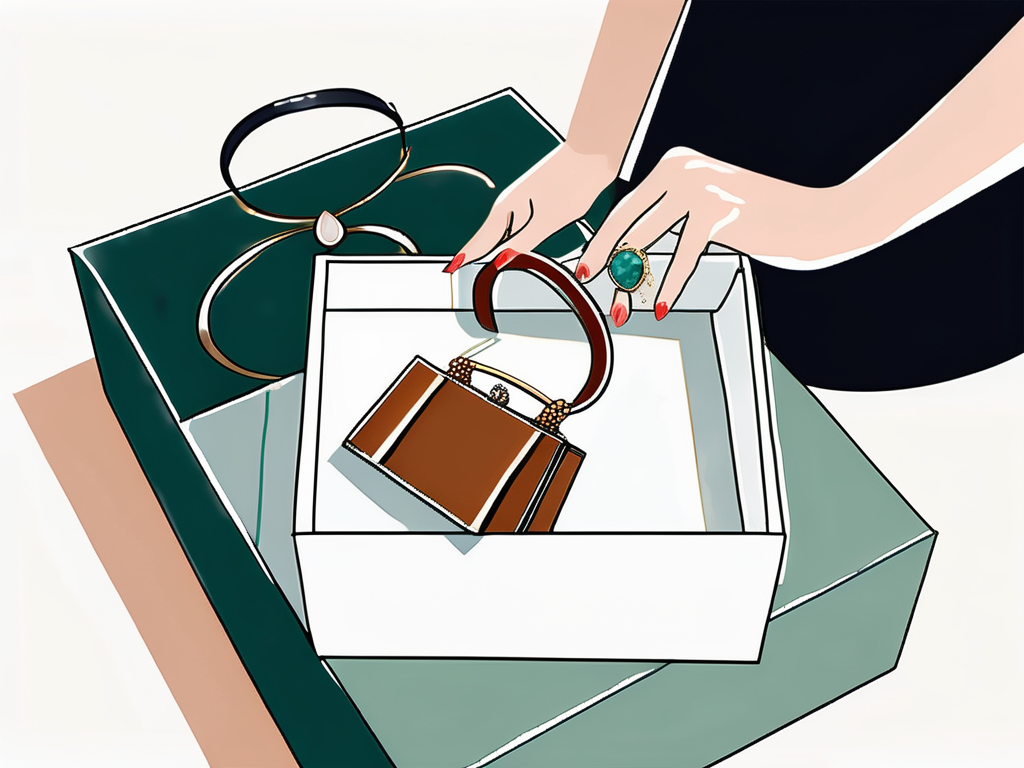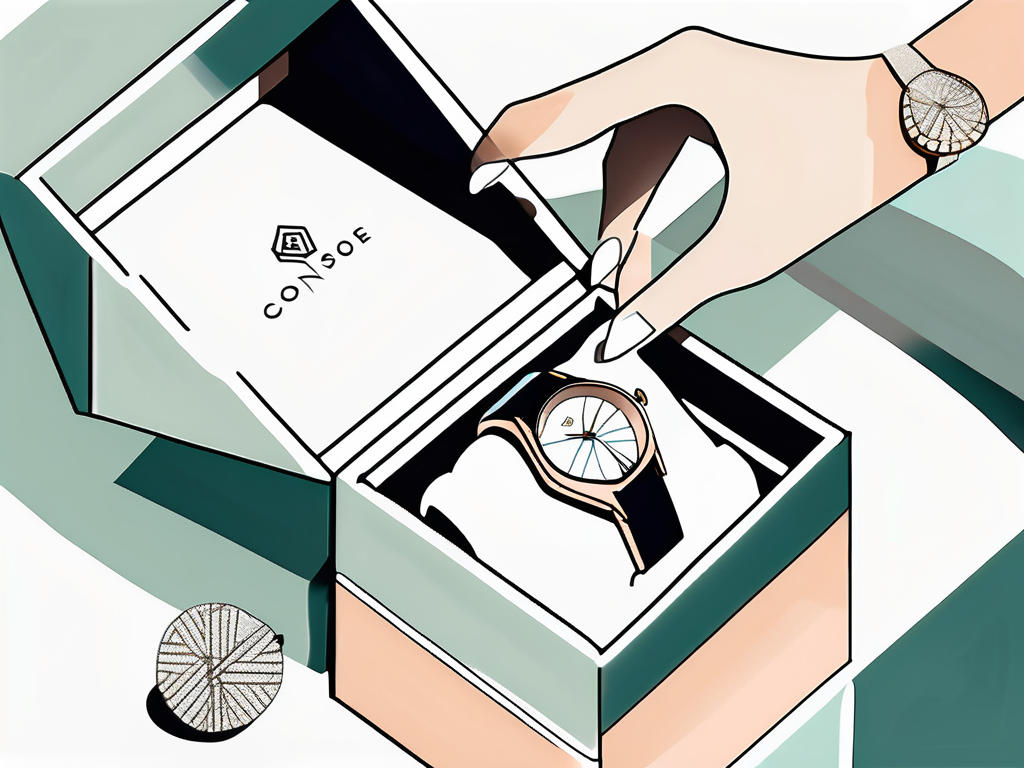What Is Luxury Consignment? Explained
Luxury consignment is a concept that has gained significant popularity in recent years. It combines the luxury market with the second-hand market, allowing individuals to buy and sell high-end designer items at a fraction of their original cost. Understanding the ins and outs of luxury consignment is crucial for both those looking to sell their luxury goods and those interested in purchasing them.
Understanding the Concept of Luxury Consignment
Before delving into the specifics of luxury consignment, it is essential to define what it means in the context of the fashion industry. Luxury consignment refers to the process of selling pre-owned luxury items, such as designer clothing, accessories, and handbags, through a trusted intermediary.

When a fashion-forward individual decides to consign their luxury items, they are not only giving these pieces a second life but also contributing to a more sustainable and circular economy within the fashion industry. By extending the lifespan of these high-end goods, luxury consignment helps reduce waste and lessen the environmental impact associated with fast fashion.
Defining Luxury Consignment
Luxury consignment is a business model that allows individuals to consign their luxury items to a consignment shop or an online platform, like Beccas Bags. These items are then made available for sale to potential buyers. Once the item is sold, the consignor and the consignee share the proceeds.
One of the key benefits of luxury consignment is that it provides access to coveted designer pieces at a fraction of their original price. This accessibility allows fashion enthusiasts to curate their wardrobes with high-quality, luxury items that may have been out of reach otherwise.
The Evolution of Luxury Consignment
The luxury consignment market has seen significant growth and evolution over the years. It started as a niche industry, catering primarily to fashion-conscious individuals looking for unique and affordable luxury pieces. However, as sustainability and conscious consumerism gained traction, luxury consignment became more mainstream.
Today, luxury consignment has become a multibillion-dollar industry with numerous players in the market. It has expanded beyond clothing to include accessories, shoes, and even luxury home decor items. The rise of online platforms and apps dedicated to luxury consignment has further democratized access to these exclusive goods, allowing individuals from all over the world to participate in the circular fashion economy.
The Process of Luxury Consignment
Now that we have a better understanding of what luxury consignment entails, let's dive into the process itself.
How Does Luxury Consignment Work?
The luxury consignment process typically begins with the consignor contacting a reputable consignment store or utilizing an online consignment platform. The consignor then provides detailed information about the item they wish to sell, including its brand, condition, and any relevant documentation.
Once the consignment store or platform approves the item for consignment, the consignor ships it to their location or arranges for pickup. The item is carefully inspected and authenticated to ensure its authenticity and quality.
Once the item is listed for sale, potential buyers can browse through the inventory and purchase items of interest. When an item is sold, the consignor receives a percentage of the sale price, while the consignee (the consignment store or platform) keeps a commission fee.
The Role of Consignor and Consignee
The consignor plays a vital role in luxury consignment as they provide the high-end items that form the inventory. They benefit from the process by earning money from the sale of their pre-owned luxury goods. On the other hand, the consignee is responsible for ensuring the authenticity, quality, and marketing of the items. They bear the logistical and administrative tasks associated with running a luxury consignment business.
The Benefits of Luxury Consignment
Now that we have covered the process of luxury consignment, let's explore the benefits it offers to both sellers and buyers.
Advantages for Sellers
Luxury consignment provides sellers with an opportunity to declutter their closets while earning money from items they no longer use or love. By consigning their luxury items, sellers can recoup a portion of their initial investment, giving them more financial flexibility to invest in new pieces or experiences.
Additionally, luxury consignment eliminates the hassle of selling items directly to buyers, as consignees handle the marketing, sales, authenticity verification, and shipping logistics.
Advantages for Buyers
For buyers, luxury consignment offers a chance to own high-quality designer pieces at a more affordable price point. It provides access to a wide range of luxury items, including vintage pieces that are no longer available in stores. Buying from luxury consignment also supports sustainable fashion consumption practices, as it extends the lifecycle of luxury items and reduces waste.
The Market for Luxury Consignment
With the increasing popularity of luxury consignment, a competitive market has emerged. Let's take a closer look at the key players in the luxury consignment industry.

Key Players in Luxury Consignment
Several consignment stores and online platforms have established themselves as leaders in the luxury consignment market. Some well-known players include The RealReal, Beccas Bags, Vestiaire Collective, and Rebag. Each platform offers its own unique features and benefits, attracting a diverse range of buyers and sellers.
Future Trends in Luxury Consignment
Looking ahead, the luxury consignment industry is expected to continue thriving. As sustainability and conscious consumerism become more ingrained in society, the demand for pre-owned luxury items is likely to increase. Technology advancements, such as AI-based authentication services, are also expected to enhance the luxury consignment experience for both buyers and sellers.
Ethical Considerations in Luxury Consignment
While luxury consignment offers numerous benefits, it is essential to address certain ethical considerations that come into play.
Authenticity and Quality Assurance
Ensuring the authenticity of luxury items is crucial in the consignment process. Consignees employ trained experts to authenticate items and provide buyers with peace of mind. Quality assurance also plays a vital role, as consignees need to accurately assess the condition of items before listing them for sale.
Sustainability and Luxury Consignment
Sustainability is a pressing concern in the fashion industry, and luxury consignment helps address it. By buying and selling pre-owned luxury items, consumers contribute to a circular economy, reducing the environmental impact of the fashion industry. Luxury consignment also promotes slow fashion and encourages conscious consumption, as buyers can invest in quality pieces that stand the test of time.
Conclusion
Luxury consignment has transformed the way we approach luxury fashion, offering a more accessible and sustainable alternative to traditional retail. With the establishment of reputable consignment stores and online platforms, like Beccas Bags, both sellers and buyers can benefit from the process. As the market continues to grow, it is essential to consider the authenticity and quality assurance of luxury consignment items, while also supporting sustainable consumption practices. Whether you're looking to sell your luxury items or add to your collection, luxury consignment provides an exciting avenue to explore the world of high-end fashion at a fraction of the cost.

